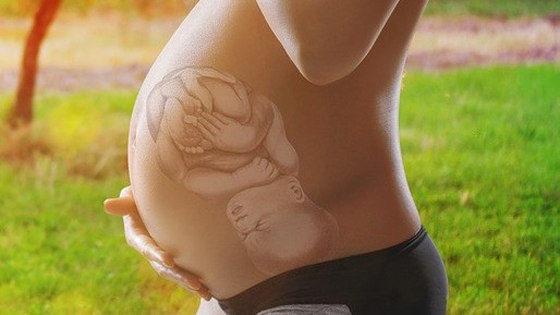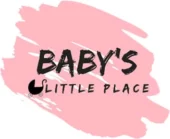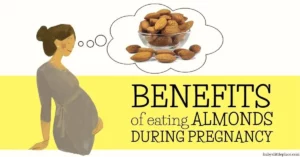Yes, pregnant women should avoid certain foods. However, she can still enjoy varied food and different tastes. Especially those pregnant women who like intense flavors begin to wonder about the baby’s sense of taste in pregnancy. But, can a baby taste food in the womb?

Can a baby taste food in the womb?
Baby’s sense of taste development during pregnancy
The baby’s sense of taste begins to develop in early pregnancy. The fetus tastes everything you taste, and research shows that your food choice during pregnancy impacts what the baby will like to eat years later.
Do you want your child not to be picky about food? Start introducing different flavors when you are still pregnant.
When does a baby start tasting food in the womb?
During the first two months of pregnancy, neurons begin to spread from the fetus brain to other parts of the body, including the mouth. That starts the formation of the taste buds, a group of receptors that will eventually recognize five basic tastes: sweet, salty, bitter, sour, and umami (a savory or “meaty” flavor).
By the 8th week of pregnancy, neurons connect with developing taste buds. However, because the baby’s tongue papillae are not fully developed, she can not taste the placenta yet.
Papillae are small pits on the tongue’s surface that enable contact between food molecules and receptors on the taste buds. They fully develop by the 16th week of pregnancy.
At about the same time, the fetus also begins to swallow the amniotic fluid. When the placenta passes past the tongue to the digestive system, taste buds detect molecules in the food. And that’s the time when the baby tastes for the first time. But what flavor a baby tastes in the womb first? That is a salty taste of the amniotic fluid in the womb.
Babies start tasting flavors around the 16th week of pregnancy, wherein the salty taste of the amniotic fluid is the first flavor they get to know.
The amount of amniotic fluid swallowed by the fetus and the number of different flavors will increase further in the second and third trimesters. By 21 weeks, the fetus can drink almost a deciliter of amniotic fluid in one day.
Baby tastes what you taste during pregnancy
Although your and the fetus’ digestive systems are separate, the molecules of the food you are eating pass through the placenta. Molecules that give different types of food a unique taste pass through the placenta into the amnionic fluid to the baby. As such, your body not only providing essential vitamins, minerals, fats, and proteins but introducing the baby to different tastes as well.
However, tastes perceived by the fetus in the womb are not as strong and distinct as they are to you. A large part of what you perceive as the taste of food is the smell, which is, of course, transmitted through the air. The baby is surrounded by the placenta, so she can not smell yet. Nevertheless, she will still recognize different types of food. If you eat spicy food, you may feel hiccups in your stomach later.
Child’s food preferences begin in the womb
Research shows that the food you eat during pregnancy affects what your baby will like to eat years later. One study found that infants of mothers who drank a lot of carrot juice during the last trimester of pregnancy showed fewer negative facial expressions when trying the same juice.
Some experts say that your diet during pregnancy shapes your baby’s future eating habits and affects the possibility of being overweight and diabetes incidence.
So what should you eat during pregnancy? Try to stick to a balanced and varied diet and choose fresh fruits and vegetables instead of salty and processed foods. That will not only contribute to your good health, but you will also get your child used to healthy and varied food in advance. And don’t be afraid to taste food with strong flavors if you love it and you want your child will love it too.



